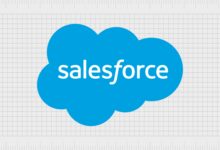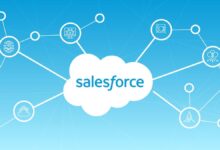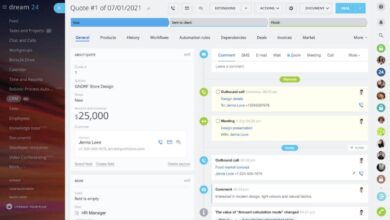Salesforce CRM Cost: 7 Shocking Truths You Must Know in 2024
Thinking about Salesforce CRM but worried about the price tag? You’re not alone. The real Salesforce CRM cost can be a maze of plans, add-ons, and hidden fees. Let’s break it down—clearly and completely—so you can decide if it’s worth every penny.
Salesforce CRM Cost: The Big Picture in 2024

When most people ask about Salesforce CRM cost, they’re looking for a simple number. But the truth is, Salesforce doesn’t have a one-size-fits-all price. The platform is modular, scalable, and highly customizable, which means costs vary wildly depending on your business size, needs, and growth plans. From small startups to global enterprises, the pricing model is designed to scale with you—but that flexibility comes at a cost, both financially and in complexity.
According to Salesforce’s official website, the entry-level Sales Cloud starts at $25 per user per month. But that’s just the starting line. Once you factor in essential features like automation, analytics, and integrations, the real cost often triples or more. For enterprise clients, annual contracts can easily exceed six figures.
Why Salesforce CRM Cost Is So Hard to Pin Down
The biggest reason Salesforce CRM cost is so elusive is its modular architecture. Unlike flat-rate CRMs like HubSpot or Zoho, Salesforce sells functionality in layers. You don’t just buy a CRM—you buy a stack of clouds, apps, and user licenses. Each module adds to the total cost.
- Sales Cloud, Service Cloud, Marketing Cloud, and more are sold separately
- Each cloud has multiple tiers (Essentials, Professional, Enterprise, Unlimited)
- Advanced features like AI (Einstein), CPQ, and analytics are often add-ons
“Salesforce doesn’t sell software. It sells transformation—and transformation isn’t cheap.” — TechCrunch, 2023
How Salesforce Pricing Has Changed in 2024
In 2024, Salesforce made several strategic pricing adjustments. They introduced new mid-tier packages aimed at SMBs, reduced some legacy licensing fees, and bundled Einstein AI into higher-tier plans. However, they also increased the cost of premium support and data storage beyond allowances.
- New “Salesforce Growth” plan launched at $75/user/month for mid-market teams
- Unlimited Edition now includes free sandbox environments
- Price hikes of 8–12% on Enterprise editions, in line with inflation and cloud infrastructure costs
Breaking Down the Salesforce CRM Cost by Edition
To truly understand Salesforce CRM cost, you need to look at each edition individually. Each comes with different features, user limits, and scalability options. Let’s dissect the most popular editions and what they really cost when fully configured.
Sales Cloud: Pricing Tiers and Real-World Costs
Sales Cloud is the most widely used Salesforce product. It’s designed for sales teams to manage leads, opportunities, and pipelines. But the advertised price rarely reflects actual spending.
- Essentials ($25/user/month): Basic contact and deal management. Limited automation. Best for very small teams (up to 10 users).
- Professional ($75/user/month): Full sales cycle management, email integration, basic reporting. Most popular for growing businesses.
- Enterprise ($150/user/month): Advanced automation, API access, custom apps. Requires admin support.
- Unlimited ($300/user/month): Full customization, 24/7 support, sandbox environments. For large enterprises.
Real-world example: A 20-person sales team on the Professional plan would pay $18,000/year. But add CPQ ($75/user/month) and Einstein Analytics ($50/user/month), and the cost jumps to $54,000/year. That’s a 200% increase from the base price.
Service Cloud: Support, Chatbots, and Hidden Fees
Service Cloud is tailored for customer service teams. It includes case management, knowledge bases, and omnichannel support. But like Sales Cloud, the real Salesforce CRM cost balloons with essential add-ons.
- Professional: $75/user/month — basic case management
- Enterprise: $150/user/month — workflow automation, CTI integration
- Unlimited: $300/user/month — AI routing, advanced SLAs
Additional costs include:
- Omni-Channel Routing: +$25/user/month
- Einstein Bots: +$50/user/month
- Field Service Lightning: +$95/user/month
For a 15-agent support team using Enterprise with bots and field service, the annual cost exceeds $60,000. That’s before implementation and training.
Marketing Cloud: Is It Worth the Salesforce CRM Cost?
Marketing Cloud is where Salesforce CRM cost really spikes. Unlike Sales and Service Clouds, Marketing Cloud is priced not per user, but per feature and data volume. This makes budgeting extremely difficult.
Marketing Cloud Pricing Structure Explained
Marketing Cloud uses a tiered, consumption-based model. You pay for:
- Email sends (e.g., $2,000/month for 1 million sends)
- Contact data volume (e.g., $1,500/month for 100k contacts)
- Journey Builder automation (add-on fee)
- Social Studio monitoring (separate license)
There’s no entry-level plan. Most small to mid-sized businesses spend between $25,000 and $75,000 annually just to run basic email and journey campaigns. Enterprise clients often exceed $200,000/year.
Hidden Costs in Marketing Cloud
Many companies underestimate the hidden Salesforce CRM cost in Marketing Cloud:
- Consulting Fees: Setup can cost $50,000+ if done by a Salesforce partner.
- Data Extensions: Custom data models require technical resources.
- Training: Marketers need weeks of training to use Journey Builder effectively.
- Integration Costs: Syncing with ERP, e-commerce, or data warehouses adds complexity.
“We budgeted $30k for Marketing Cloud. The first-year total cost was $120k.” — CMO, Mid-Market SaaS Company
Implementation and Consulting: The Overlooked Salesforce CRM Cost
The sticker price of Salesforce licenses is only 30–40% of the total cost. The rest? Implementation, customization, training, and ongoing support. These are often the most expensive—and most underestimated—parts of the Salesforce CRM cost.
Why Implementation Costs Vary So Much
Implementation cost depends on:
- Number of clouds being deployed (Sales, Service, Marketing, etc.)
- Data migration complexity
- Custom workflows and automation
- Integration with existing systems (ERP, accounting, HRIS)
- Desired timeline (rushed projects cost more)
For a small business, implementation might cost $15,000–$30,000. For a mid-sized company with multiple systems, it can reach $100,000+. Enterprise rollouts often exceed $500,000.
Choosing Between Salesforce Partners and Freelancers
You can hire:
- Official Salesforce Partners: Certified consultants with proven track records. Cost: $150–$300/hour.
- Freelance Admins: Lower cost ($75–$150/hour), but may lack experience with complex integrations.
- In-House Team: Requires hiring a Salesforce admin ($80k–$120k/year salary).
According to Gartner, companies that use certified partners are 40% more likely to complete projects on time and within budget.
Customization and Add-Ons: How They Skyrocket Salesforce CRM Cost
One of Salesforce’s biggest strengths—customization—is also its biggest cost driver. While the platform can be tailored to fit any business process, each tweak adds expense.
Common Add-Ons That Increase Salesforce CRM Cost
Popular paid add-ons include:
- CPQ (Configure, Price, Quote): $75/user/month — essential for complex sales.
- Einstein AI: $50–$100/user/month — predictive analytics and automation.
- Field Service Lightning: $95/user/month — for scheduling and dispatching.
- Community Cloud: $100/user/month — customer or partner portals.
- Tableau CRM (formerly Wave): $75/user/month — advanced dashboards.
For a 50-user company using CPQ, Einstein, and Tableau, add-on costs alone exceed $120,000/year.
AppExchange Apps: Hidden Fees and Integration Risks
Salesforce’s AppExchange offers thousands of third-party apps. While many are free, premium apps can cost $50–$500/month. Worse, poor integration can lead to data silos, performance issues, and security risks.
- Popular apps like DocuSign, Mailchimp, and MuleSoft have recurring fees.
- Some apps charge per transaction or API call, leading to surprise bills.
- Custom integrations may require middleware like MuleSoft, which costs $500+/month.
“We saved time with AppExchange apps but spent 3x more on integration than expected.” — IT Director, Financial Services Firm
Data Storage and User Licenses: The Silent Cost Drivers
Even if you avoid add-ons, Salesforce CRM cost can creep up through data and user management. Salesforce limits data storage per user, and exceeding it triggers overage fees.
How Data Storage Limits Work
Each edition includes a base amount of storage:
- Essentials: 200 MB per user
- Professional: 600 MB per user
- Enterprise: 1 GB per user
- Unlimited: 3x standard storage
Overage fees: $0.01 per MB per month. For a 100-user company exceeding by 10 GB, that’s $100/month or $1,200/year—just for storage.
User License Optimization Tips
Many companies overpay by assigning full licenses to users who don’t need them. Salesforce offers lower-cost licenses:
- Lightning Platform Starter: $25/user/month — for basic app access
- Customer Community: $100/user/year — for external users
- Chatter Only: Free — for collaboration only
By using role-based licensing, one company reduced its annual bill by 35%—saving over $40,000.
Alternatives to Salesforce: Lower-Cost Options Compared
Given the high Salesforce CRM cost, many businesses explore alternatives. While none match Salesforce’s depth, several offer compelling value.
Top Salesforce Competitors in 2024
- HubSpot CRM: Free core CRM; paid plans start at $50/month. Much simpler, great for SMBs. Learn more.
- Zoho CRM: Starts at $14/user/month. Highly customizable, good for mid-market. Learn more.
- Pipedrive: $14.90/user/month. Sales-focused, intuitive interface.
- Microsoft Dynamics 365: $65–$225/user/month. Strong integration with Office 365.
When to Stick With Salesforce Despite the Cost
Salesforce is worth the premium if you:
- Have complex sales cycles
- Need deep customization
- Operate in regulated industries (finance, healthcare)
- Plan to scale globally
- Require AI and advanced analytics
For these use cases, the ROI often justifies the Salesforce CRM cost.
How to Reduce Your Salesforce CRM Cost Without Losing Value
You don’t have to pay full price. Smart strategies can cut costs by 20–50%.
Negotiate Your Contract Like a Pro
Salesforce rarely gives discounts upfront. But they’re negotiable, especially for annual commitments.
- Ask for multi-year discounts (10–20% off)
- Bundle clouds for better rates
- Request free training or support credits
- Use a broker or consultant to negotiate
Optimize Licenses and Usage
Regularly audit user roles:
- Downgrade inactive users
- Use platform licenses for internal tools
- Remove unused apps and integrations
- Monitor login activity to identify ghost users
Leverage Free Tools and Communities
Salesforce offers free resources:
- Trailhead: Free learning platform for admins and developers
- Developer Edition: Free sandbox for testing
- Success Community: Peer support and best practices
- Nonprofit Pricing: Up to 80% off for eligible organizations
“We cut our Salesforce bill by 30% just by cleaning up licenses and using Trailhead for training.” — CIO, Tech Startup
What is the starting price for Salesforce CRM?
The starting price for Salesforce CRM is $25 per user per month for the Sales Cloud Essentials plan. However, most businesses end up paying $75–$150 per user per month once they add necessary features and automation.
Why is Salesforce so expensive?
Salesforce is expensive because it’s a highly customizable, enterprise-grade platform with deep functionality, AI integration, and global scalability. The cost includes not just software, but also infrastructure, support, and continuous innovation. Implementation and add-ons also significantly increase the total cost.
Are there hidden costs in Salesforce CRM?
Yes, common hidden costs include implementation fees, add-on modules (like CPQ or Einstein), data storage overages, user license mismanagement, and third-party app integrations. Training and ongoing admin support also add to the total cost.
Can small businesses afford Salesforce CRM?
Small businesses can use Salesforce, especially with the Essentials and Professional editions. However, they must be cautious about add-ons and implementation costs. For very small teams, alternatives like HubSpot or Zoho may offer better value.
How can I reduce my Salesforce CRM cost?
You can reduce costs by negotiating multi-year contracts, optimizing user licenses, using free Trailhead training, removing unused apps, and leveraging lower-cost platform licenses. Regular audits and using certified consultants can also prevent overspending.
Understanding the true Salesforce CRM cost goes far beyond the monthly per-user fee. It’s a combination of licensing, implementation, customization, add-ons, and ongoing management. While Salesforce offers unmatched power and scalability, it demands a significant investment. By planning carefully, negotiating wisely, and optimizing usage, businesses can harness its full potential without breaking the bank. Whether you’re a startup or an enterprise, knowing the full cost picture is the first step to making a smart decision.
Further Reading:






